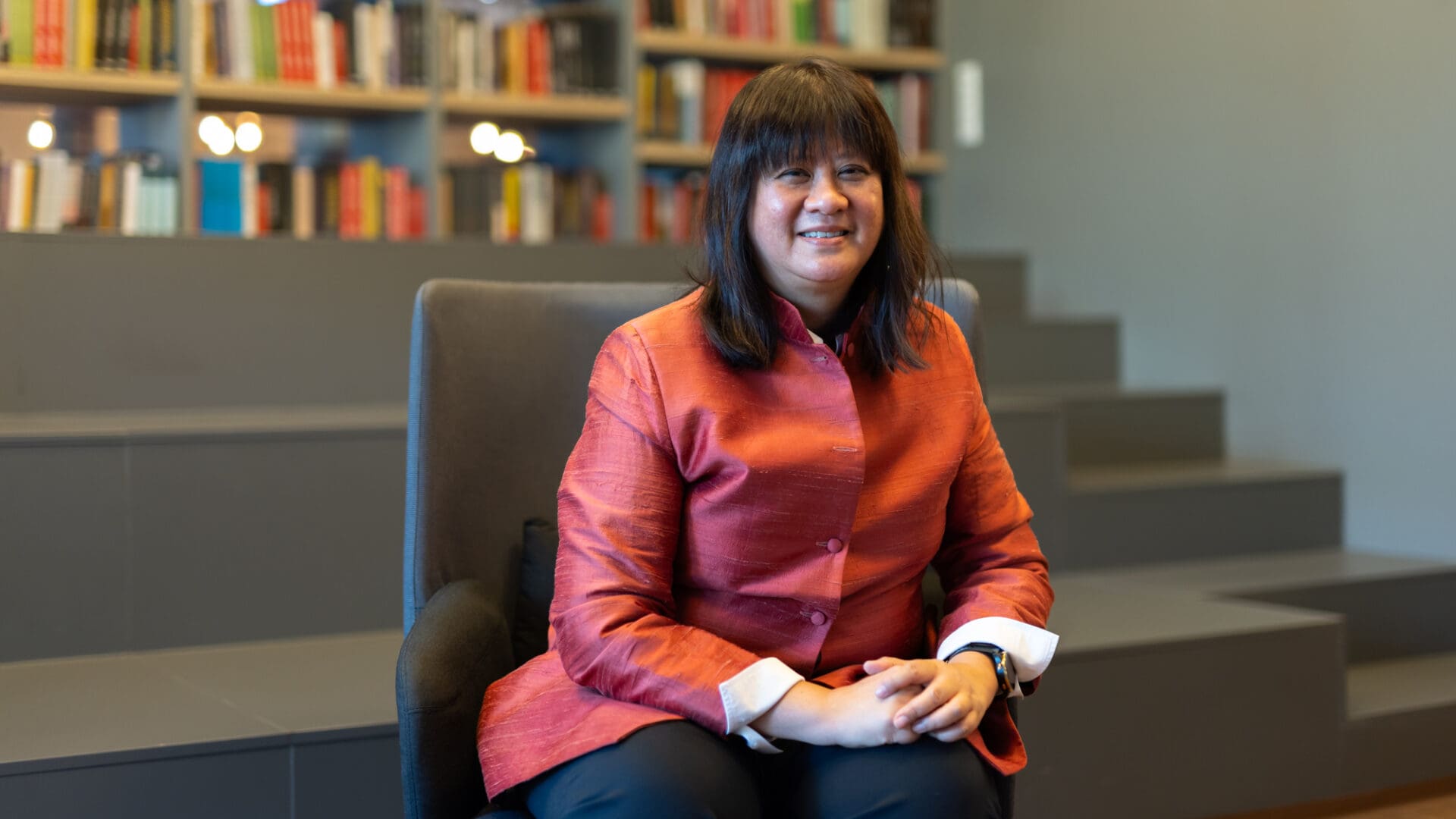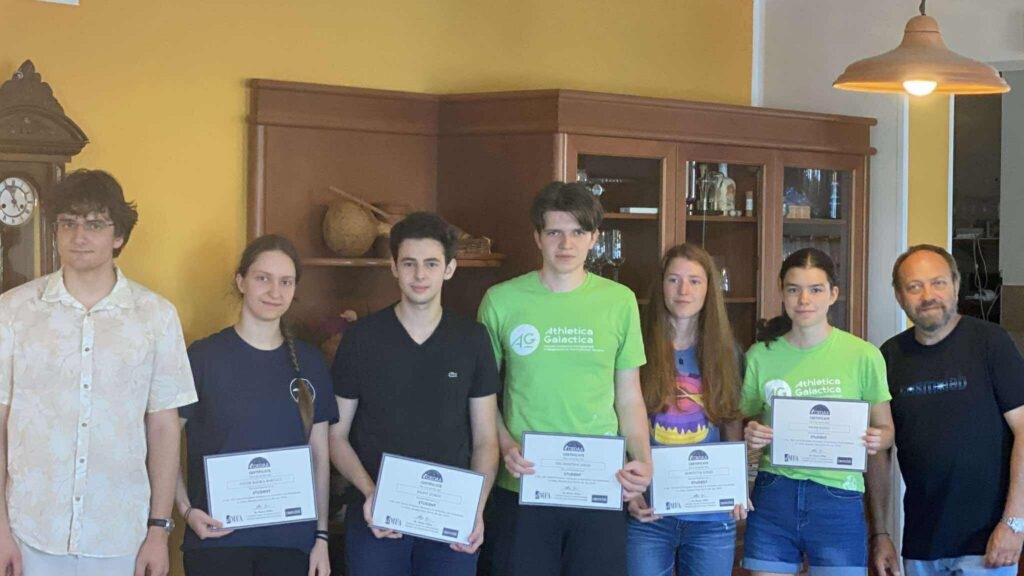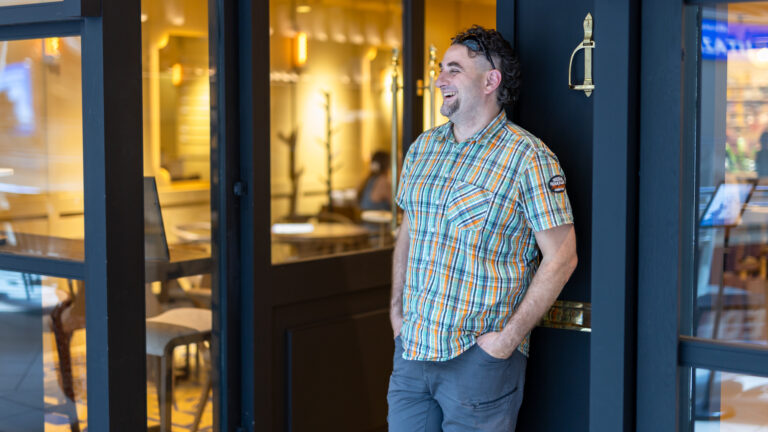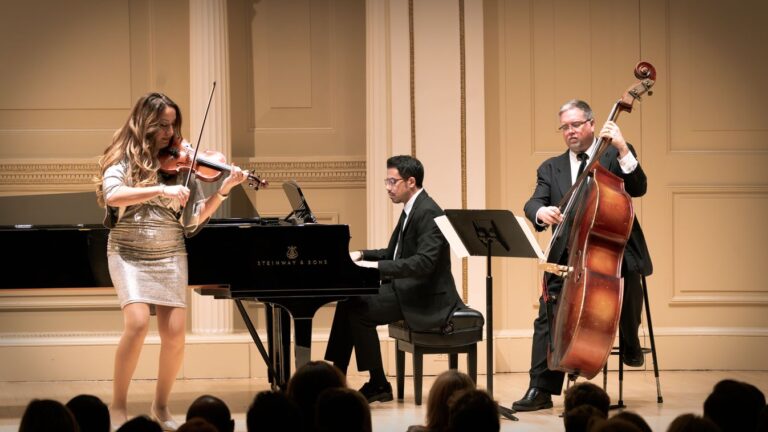Thio Li-ann is a Singaporean law professor at the National University of Singapore. She was educated at the University of Oxford, Harvard Law School and the University of Cambridge. In 2007, she was appointed a Nominated Member of Parliament (NMP) in Singapore’s 11th parliament. Professor Thio Li-ann teaches and has published widely in the fields of public international law, human rights law, constitutional and administrative law. She is currently the Chief Editor for the Singapore Journal of Legal Studies. She is also on the editorial board of the Journal of East Asia and International Law, National Taiwan University Law Review and on the advisory board of the New Zealand Yearbook of International Law, Australian Journal of Asian Law and International Law & Human Rights Discourse. Hungarian Conservative spoke with her on the margins of the international human rights conference Rescuing Our Inalienable Rights in Budapest in September.
***
What are your impressions of Hungary so far? Is this your first time here?
I haven’t had goulash yet, so I’m a bit excited. I really like goulash, but this is my second time in Hungary. I was here in 2016 and travelled all over the country. I am very interested in its history, and I have studied a little about minority treaties. This was a part of my Ph.D. research, so I have some knowledge. I love this part of the world and am very happy to be back in Hungary again.
But you know many other parts of the world as well because you have attended university in many countries around the globe. You studied in the US at Harvard, and in the UK at Cambridge and Oxford, as well as in Singapore. Can you mention any differences between the teaching methods?
In Oxford, it’s common law, and it involves a very deep theoretical dive, delving extensively into case law. Oxford is actually the place where I learned how to do law. At Harvard, it’s all about argumentation—law intertwines with politics, and politics with law. So, I decided not to pursue a PhD there because I didn’t want to do a PhD in political science. Instead, I chose Cambridge because I wanted to study international law in-depth. Some of the best international lawyers were teaching at Cambridge, so they became my mentors, and I needed their discipline, which they certainly provided.
Still, some parents tend to discourage their children from studying law because they think they would be confined to one country.
But not if you’re an international lawyer.
Do you think it is important to gain experience in other countries as a lawyer as well?
It depends on what kind of law you want to practice. If you’re going to practice Hungarian company law, then all you need to know is Hungarian company law. I’m speaking from an academic perspective. I believe, as an academic, it’s always valuable to see how others teach and how they view law. One of the great pleasures as an academic is to travel to places like Hungary and China, and to be challenged by ideas and to challenge others. For example, in today’s panel, there were three Americans and myself. I didn’t appreciate the fact that they always started with the American Constitution and the American Declaration of Independence. I know this very well because I wrote my master’s thesis on this. However, in an international human rights conference, America is not the world. So,
I feel it is my responsibility to provide the Asian perspective, to represent the Third World perspective.
Therefore, I think it’s important to travel if you’re a curious person. At my university, for example, many of my students go on exchanges, whether it’s to New Zealand, China, or perhaps even Budapest.
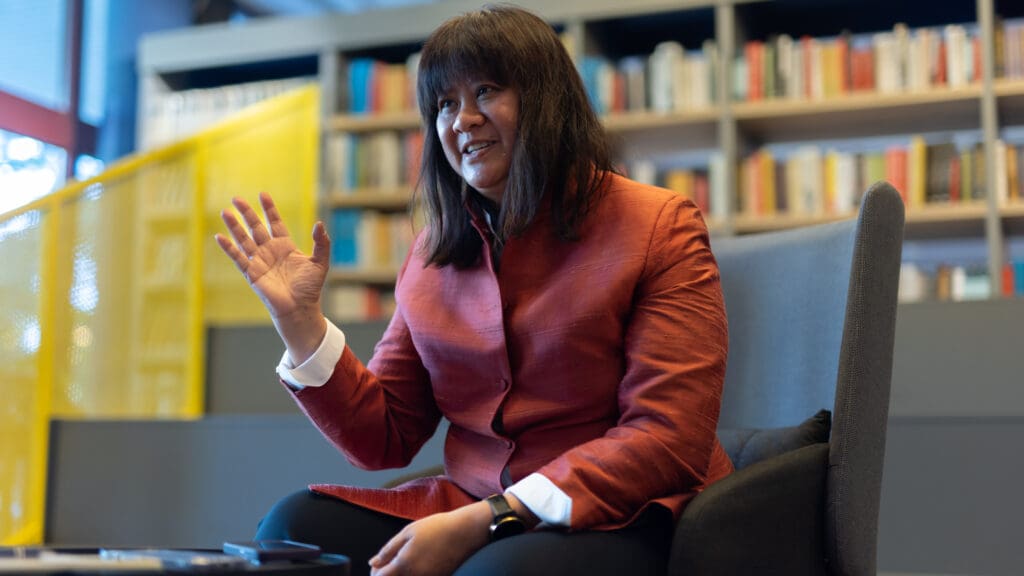
We, Singaporeans, we live on a very small island. You can drive across it in less than a day. We love to travel; we have a great airport. I would definitely encourage people to travel. Just living abroad itself is an experience—learning to do your own laundry, learning how to cook, especially since English food is not great. It teaches you to be an adult. I think it’s very enriching. I was very fortunate; my mother was actually the Dean of the university. My parents did not tell us where to study or what to study; they left us alone. All three of us ended up studying law at either Oxford or Cambridge. We’re very boring in that sense. My father was an engineer; he went to MIT, and we all decided we were not for the sciences. So we opted to study law. Originally, I actually wanted to study English literature, but being Chinese and pragmatic, I thought, ‘I can’t make a living out of Shakespeare.’ So I decided to practice law, and I’ll read Shakespeare in my free time.
I think many law students start studying law for quite similar reasons.
You have to think a little bit about how you’re going to live your life. I thought I was going to practice law. Originally, my mother was an administrative lawyer, and then she became part of the first wave of company lawyers in Singapore. She helped to shape company law. Therefore, I thought maybe I would go into company laws and securities. But I guess I didn’t know myself very well because by the time I went to Harvard, I discovered human rights and Henry Steiner. Also, significant international issues and constitutional law—especially related to the Arab world—caught my attention. I chose Harvard because I had studied in England for my first degree, and someone suggested that if I really wanted to teach constitutional law, I should go to a country with a constitution, and America seemed like the natural choice.
So that’s how you ended up studying at Harvard?
Indeed, so I went to America and realized they don’t really have constitutional law. They have the law of the Supreme Court. Basically, you don’t learn anything about federalism or drafting constitutions. I think it was very parochial. Yes, I know America is dominant and all that… But when I conduct research in comparative constitutional law, with a focus on Asia, I have a broader understanding of the world. I can see that a lot of my scholarship emphasizes where I come from and exposure to Western thought, which is not typically Eastern, right? Because I’m not mainland Chinese, I’m an immigrant Chinese — we’re very different creatures. But I find that my job at least is to pluralize how people think, to challenge dominant conceptions and just to upset people a little bit. Provocation, academic provocation.
When talking about academic provocation, I would like to ask you about freedom of speech at universities. There are different points of view on whether there is actually freedom of speech at universities. What did you experience during your time studying at home in Singapore and abroad?
Honestly, I was too young to care because I was just trying to figure out how to be a young adult (laughs). Back when I studied, it was all in the last decade of the 20th century. I think things have changed a lot now. I would actually argue that there’s more freedom of speech in Singapore than at NYU, for example. I’ve faced cancellation at NYU due to my conservative views. So I’d like to point out there’s a difference between liberal liberalism and illiberal liberalism. If you’re liberally liberal, you won’t mind me. You won’t mind my views. You’d agree, or we could engage in a constructive debate. But, as Voltaire once said: ‘I respect your right to have your point of view.’ Nowadays,
when you have what I call maybe ‘liberal authoritarianism,’ you pretend to be liberal,
but if I say something you don’t like, you’ll shut me down, you’ll cancel me. Academic freedom doesn’t really exist anymore. So, I won’t listen to that—I grew up respecting America and really wanted to go to Harvard because I watched movies like The Paper Chase about going to Harvard to study law.
So what has changed since you were a student?
Nowadays, I see that there is a lack of free speech because if you come across wokeism or cancel culture, that is illiberal. So we no longer have a neutral state in the West; we have a re-moralized state. At least in the East, we’re honest about it. If my country promotes a certain way of life, like communitarianism and social harmony, at least we say so. Liberals, in a sense, if they’re honest with themselves, know that it goes like this now: if I want to question, for example, same-sex marriage, I’m not allowed to do that. It seems to me as though those ideas have now a status similar to what religion had in the past. So I call it a secular religion. And for me as an academic, how can you not question everything? The whole point of being an academic is this; we don’t earn that much money. The one thing we have is the ability to trade and engage in ideas.
So I would suggest that there could be limitations on free speech in Communist China, where you can’t criticize the government. However, you can equally encounter limitations on free speech in America, for instance at Berkeley. I mean, conservative speakers go to campuses, like Ben Shapiro, and they are shouted down, they’re intimidated. Once upon a time, it was governments that squashed speech, so it was vertical. Nowadays, you also have a horizontal version where people shout at you and intimidate you into silence. And if it’s on the Internet, that makes it even worse because you’re doxxed, with people putting your name out there, and it’s very easy to be intimidated. The Singapore government has tried to legislate against this, but it’s impossible to completely regulate speech on the Internet.
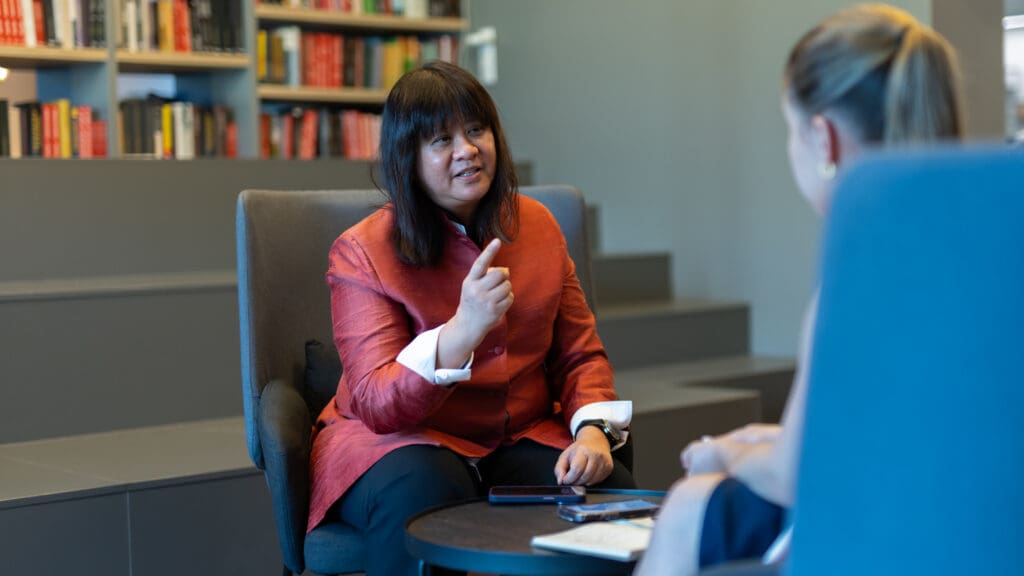
The readers might find the statement startling — that you suggest freedom of speech is equally restricted in the US as in Singapore or even China.
So the first thing is, I do not accept the American view about the question of free speech. The American First Amendment couches free speech absolutely. You know, Congress shall pass no law abridging free speech. But I’ve studied American law, I know there are some limitations. But in the American context, you can burn the Quran, you can burn the Bible, you can do all these kinds of things, you can spit on Jesus, whatever. You can’t do that in Singapore—because we have laws on causing religious offense.
But there are dangers in both approaches, aren’t there?
Absolutely. I think that there’s a limitation to law.
Ultimately, it’s a question of common sense and courtesy.
When you insult my religion, you insult a part of me, and I might get a little bit irritated. But because we all live on the same island, we will learn to be tolerant of that kind of thing. So the danger of religious offense laws is: what if you are very easily offended? What if you haven’t developed some degree of tolerance and thick skin?
But if you have the American approach, the free market one, it seems all is well. However, what if you say there is speech that is so inflammatory that it actually upsets people? And nowadays, if you say something like a woman is biologically determined… I mean, when you have a Supreme Court judge who doesn’t even know the answer to the question ‘what is a woman’, it’s not because she’s stupid, it’s because she’s afraid. So I would say that a pure free market approach has its dangers, and so does any regulatory approach.
So what do we do? Now we’re trying to say that part and parcel of being a human being is civility. Civility is not something that the law can bring about. It’s your upbringing. Self-restraint, if we share the same island, then we need to live together so we should regulate ourselves at some point. It would be very dangerous if there was always a law to regulate that. I don’t believe any country has absolute free speech, including America. So the question is what are the things you can limit speech over? Is it sedition? Is it religious offense? Is it libel? Is it contempt of court? So as a common lawyer, I would say there have always been limitations on free speech. The debate for me has not been about whether there is too much free speech, but whether there is a healthy balance between free speech and competing interests.
Do you believe that religious aspects should be considered as arguments during the legislative process?
Well, I believe that given the diversity of perspectives, my personal belief aligns with a relatively free market approach. I think anyone should be able to express their views, within the limits of not inciting crime or promoting hatred. So, in strongly Catholic countries, for instance, I believe you should certainly be able to express your point of view. However, it’s crucial to recognize that not everyone adheres to the Catholic faith. In Singapore, we have Muslims, Christians, Buddhists, and people of various beliefs. We’ve learned that you need to consider multiple viewpoints. I’ve been in parliament and I’m a Christian, but I’ve never invoked the Christian argument. People might say, ‘Oh, you’re Christian, that’s why you say that.’ I respond, ‘Yes, I am Christian, and I’m not ashamed of it. However, I’ve tried to frame my argument in a way that is accessible to all of you.’
In essence, I aim to persuade Muslims, liberals, and anyone else by presenting a reasoned argument that they can assess or reject. I believe
any viewpoint can be expressed, but it should be articulated in a manner that is persuasive to those who may not share the same ideology.
For example, during the debate on whether to have a casino in Singapore, which shocked many, I referred to how the Muslim community viewed it. I’m not a Muslim, but I mentioned their perspective. They mentioned that the Quran forbids certain activities as they’re detrimental, advocating for earning a living through legitimate means. They also voiced concerns about issues like gambling, loss of money, drug trafficking, and drug abuse. In an article, I emphasized how useful it was for Muslims to share their views for two reasons. Firstly, they are an important minority, and it’s crucial to understand their perspective. This doesn’t mean we accept everything they believe, but in a democracy, considering everyone’s thoughts is important before arriving at a consensus decision. Secondly, one doesn’t have to be a Muslim to comprehend the argument about the negative impacts of gambling: depression, suicide and drug abuse. Therefore, I stated that they’ve contributed positively by expressing their religious perspective and articulating it in a way that everyone can understand. It’s open for consideration, acceptance, or rejection, but they’ve participated constructively in Singapore without compromising their integrity.
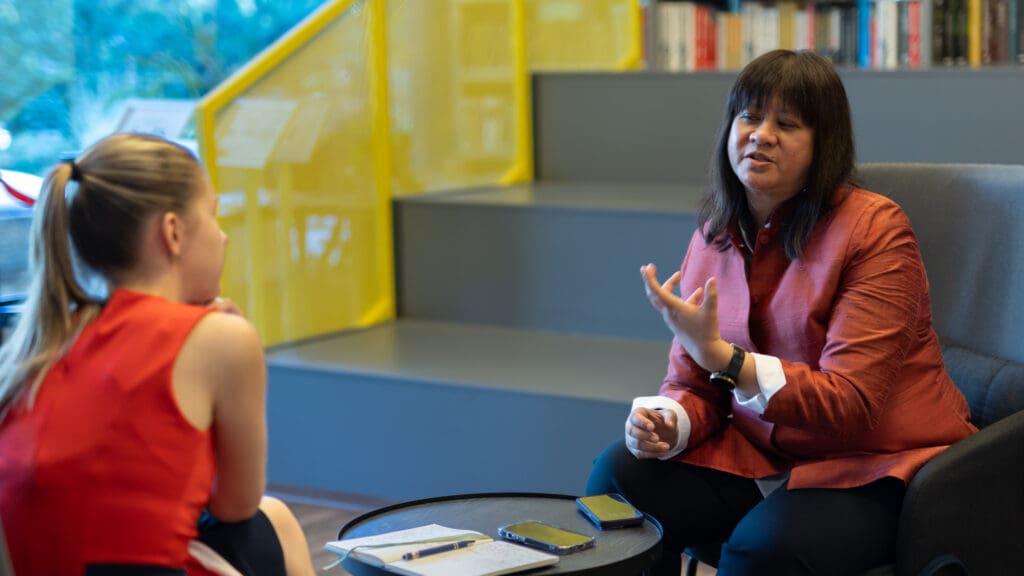
Yes, I understand that in your point of view, while there is freedom of speech, you would like to express your thoughts in such a way that it can be accessible to everyone. Nevertheless, you have been attacked from the left because one of your speeches that they considered to be ‘anti-gay’.
It was more pro-family than anti-gay; but it was framed differently. I actually said ‘You should just leave homosexuals alone’. But when it comes to bigger issues like marriage and public education, then we can take a different position and say, ‘This is not a good idea.’ So my argument was really about just leaving them alone. It wasn’t about ‘Let’s throw them in jail,’ because there was a criminal law, but it wasn’t enforced. It was there as a kind of moral statement. But no matter what you say, people don’t necessarily read what I say. They just talks about my anti-gay speech, and then I’m like, ‘Have you actually read what I said?’
And this is the thing I don’t like. At least with academics, you would assume people would actually read what you write. In politics, that’s not true. They like catchphrases and buzzwords and all that, but nobody actually quite listens to what you’re really saying. Now, I was just making an argument on the basis that I don’t agree with homosexuality. I know homosexuality exists. I don’t necessarily want to throw them in jail, but I don’t want them corrupting young minds. So why can’t I have that point of view? ‘Oh, you’re hateful, you’re homophobic.’ I didn’t play that game.
The Hungarian government is often criticized because it supports relationships that are reproductive. Do you agree with the government on this matter?
I think marriage is a social good. If you don’t reproduce yourself, you will die out. Europe is dying out because you’re not reproducing yourself anymore, right? You’re not having families. A society is entitled to protecting the things that protect it, so it’s up to the choice of each country: if Hungary wants to protect families, it’s within their right to do so…
I read your constitution. I know how you define marriage and the protection of life. I like it and people might hate me for saying that.
Singapore has very liberal abortion laws, and I strongly disagree with them. I believe it cheapens life. As a human rights lawyer, I think we need to consider the right to be born. Although some argue that a foetus is not yet a human being, it’s evident that it will develop into one with time and growth. Common sense should prevail in this matter, and what truly concerns me is the apparent lack of it.
As a human rights lawyer, why and how would you consider the right to be born?
My argument really is: why do some individuals advocate for extremely liberal abortion laws? If a guy just wants to get naked, engage in activities that could result in pregnancy, and then wants to eliminate the consequences of that union, it raises concerns for me. I believe ultimately this harms the most vulnerable person in society. I become quite irritated when people treat an unborn child as if they are insignificant—because that’s not true. In fact, it’s not scientifically accurate either.
I believe taking a very lax approach to such matters is purely a matter of convenience.
What I’m trying to express is that if someone becomes pregnant and does not wish to have a child, we should support her throughout the entire process, providing assistance and covering the costs. People make mistakes in life; none of us are perfect. However, the essential point is that if we genuinely value life, especially the life of the most vulnerable, we should find a way to help.
I teach a course on human rights in Asia. I have a lot of European students, and they’re all ready to do their women’s rights things. And rather than shouting and screaming, I point out and I say, ‘Do you know, in Asia, when we talk about abortion, we’re actually talking about the feminist side?’. Because people use ultrasound machines in China and in India. And if it’s a girl, they kill it. And if it’s a boy, they’ll keep it. So that’s a gender issue, right? So is it okay to kill it because it’s a girl? At that point, all the girls get a bit sad. So in Japan and in India they have what is known as baby hatches, which means if you go to a hospital, there’s a little hatch in the window and you can actually put a baby in it. It’s warm inside and the hospital would take care of it.
Then there’s a woman who was involved in the Tiananmen Square massacre and later fled to Boston. She founded an NGO called All Girls Allowed. They are offering to help villages by providing for pregnant women expecting girls, covering their first year’s expenses for milk and clothes. While this may not transform an entire country, it can certainly impact lives. As a human rights lawyer, I believe every life holds significant value.
If you help support this financially, they go to villages and tell everybody who is pregnant with a girl that they’ll pay for the first year’s milk and clothes, right? I don’t know whether that can change a country, but it can maybe change a couple of lives. And to me, as a human rights lawyer, ultimately every life counts.
Yes. And at the same time, Singapore is facing such demographic challenges as Hungary. How do you think the legislators could help turn things around?
They’ve been trying really hard, so they’ve been trying to change all the policies on work-–ife balance. They have this tax rebate called a baby bonus. So they have kinds of administrative policies and incentives to try and encourage starting a family. But I think probably the most important thing is you need to get the men to take a share. The government tries very hard to promote this because they know it’s a real problem. There have been actually quite a few developments in Singapore at least over the past ten years. I don’t know if that goes far enough, but at least they’re thinking about it.

